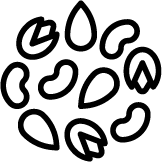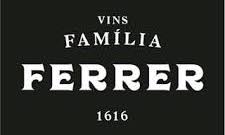
Pending new entry. If you buy today the estimated delivery date is the Thursday 5 March 2026
The Cava of Paraje Can Sala is a complex and very well elaborated cava. The varieties that are used for the elaboration of the base wine of this great cava are, the Xarel·lo and the Parellada. The grapes are harvested in mid-September and early October respectively. The grape comes from carefully selected strains of the family farm of Sant Quintí de Mediona, an area that has calcareous lands that make it excellent for the cultivation of traditional varieties.
The grape collection is done manually and at the optimum time and is transferred to the original press of the winery (the first approved by the champagne, dating from 1900) that with a yield of just 50% a must is achieved of maximum quality. The whole process is done by gravity, no pumps, filters, or pipes are involved, because only in this way their original characteristics are respected.
Once the flower must is obtained, the mini fermentations are carried out, separated by varieties in 4,000 liter tanks to have an exhaustive control of the wines coming from each payment in order to reach the ideal coupage.
Aging in the cellar for a minimum of nine years, fermenting in bottles covered with cork stopper. After the aging, the bottles are placed on desks and an expert hand removes the bottle to take the sediments to the neck of the same. Finally the disgorgement is done by the method of "bolea", manually. As was done before.
The result is a spectacular cava that we could classify as one of the best cavas in Spain and that could compete with some vintage champagnes from you to you.
“This cava is Freixenet's response and mine to a historical debt. A project inspired by the feeling of gratitude towards those people who made possible the birth of our company. A return to the origins. To the place where my parents, together with my grandparents, made the first bottles of Freixenet. It all started in Can Sala over a hundred years ago. ” José Ferrer Sala
If you have any questions when buying Can Sala place wine cellar, get in touch with the vinopremier sommelier and he will roast you without obligation. Vinopremier.com your online cellar and wine shop since 2008.
 Sausages and nuts
Sausages and nuts

Vins Familia Ferrer: Vinos de Finca, vinos singulares, vinos que demuestran sus orígenes desde 1616
El proyecto enológico de la Familia Ferrer se inició hace más de 400 años en Mediona (Penedés). En 1616, Joan Ferrer contrajo matrimonio con Marianna Puigdengoles y se instalaron en una vieja masía del siglo XII que, desde entonces, se conoce como La Freixeneda.
Año tras año, la familia Ferrer ha cuidado las viñas y olivos de las fincas creando vinos, cavas, aceites y aguardientes que rinden tributo a estas tierras.
Hoy, 18 generaciones después, han querido poner en valor a todos los que les precedieron recuperando las bodegas históricas - Can Sala y La Freixeneda - para elaborar vinos y cavas que reflejan la importancia del terroir con una viticultura delicada y cuidada.
Vinos únicos que expresan la personalidad de Mediona una finca que va desde los 380 metros hasta los 750 metros de altitud, que ofrece condiciones excepcionales para el cultivo de la variedad que más personalidad ofrece a un cava: la Parellada. Su altitud –mayor que la del resto de la comarca del Penedés, sus tierras pedregosas y sus suelos menos fértiles son las ideales para su cultivo. Y las viñas de más de 75 años con producciones muy bajas son ideales para elaborar Cavas de Paraje con larguísima crianza como son el Cava Can Sala, el cava Vinyes de Can Sala Brut Nature, el cava Vinyes de Can Sala Rosé y el cava Josep Ferrer. Cavas que son comparables con los otros grandes vinos espumosos que se elaboran en el mundo.
La bodega Can Sala (S. XIX) produce Cavas de Paraje con las variedades propias de la zona de Mediona: Parellada y Xarel•lo. Can Sala y Vinyes de Can Sala son dos de los únicos 20 cavas de Paraje Calificado que existen en España. Una categoría –la máxima que se otorga– que incluye los cavas producidos dentro de la D.O. Cava de viñas seleccionadas por su excepcional calidad.
La bodega La Freixeneda (S. XIII) produce vinos únicos de cepas singulares de la finca familiar. Sólo los viñedos que consideramos excepcionales –apenas un 2%– se utilizan para elaborar nuestros vinos, lo que garantiza una singularidad y una calidad excepcional para su elaboración